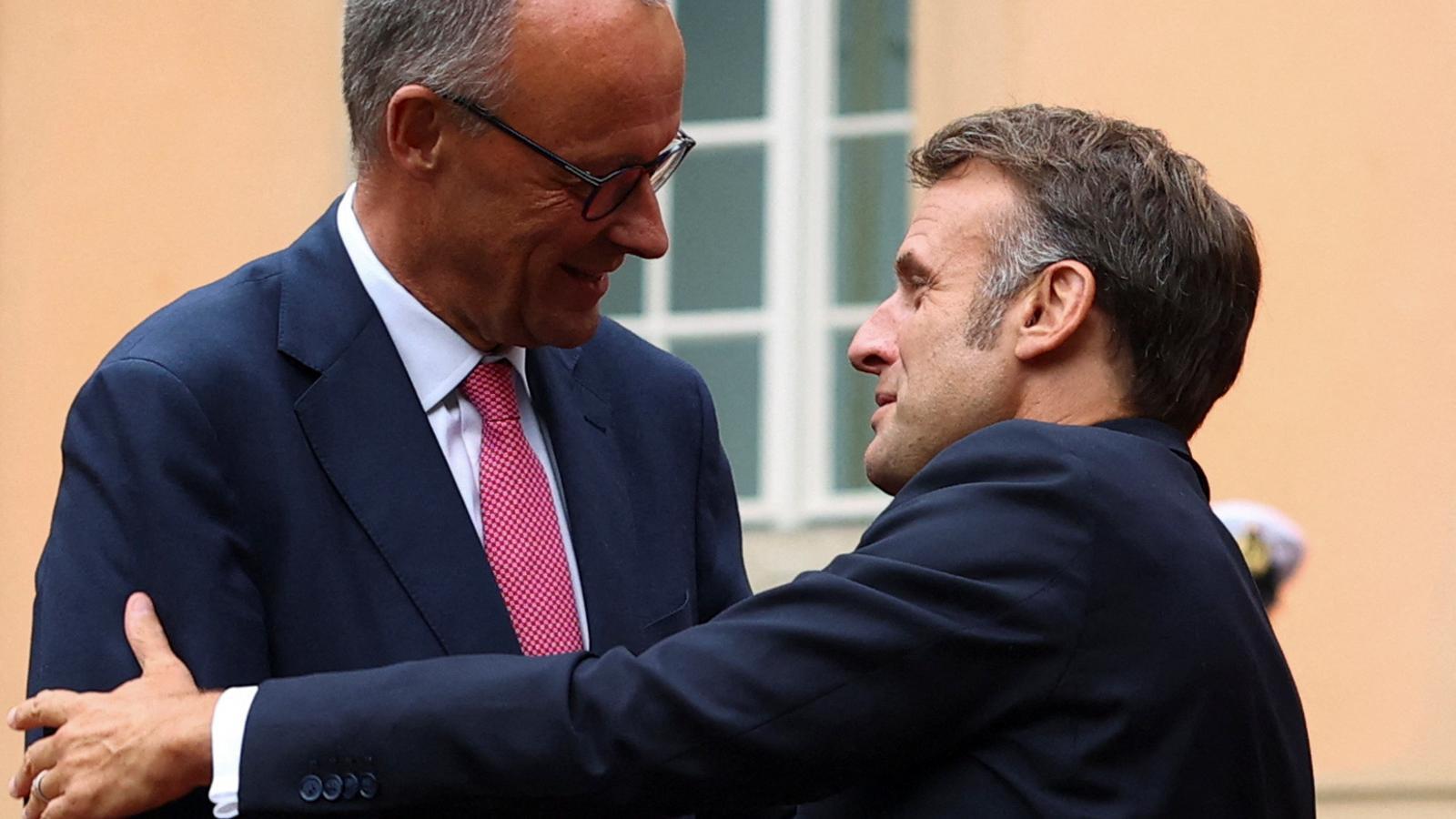Macron and Merz boast of harmony despite differences on trade, defense, and foreign policy.
Germany has not signed the letter from 25 countries, including France, urging Netanyahu to halt the Gaza offensive as soon as possible.

BerlinGerman Chancellor Friedrich Merz and French President Emmanuel Macron on Wednesday showcased their personal rapport and Franco-German friendship as the driving force behind the European Union, despite current differences between Berlin and Paris on defense, trade, and foreign policy.
The working dinner between Merz and Macron took place at Villa Borsig, a large mansion on the outskirts of Berlin that until 1937 was owned by the great Borsig industrial family and now belongs to the German Foreign Ministry. "We will discuss very current issues, including current trade policy," Merz said before meeting with Macron, and expressed his conviction that the meeting will lead them to make "decisions."
The personal relations between Merz and Macron are more cordial than those The French president had talks with former Social Democrat Chancellor Olaf Scholz, with whom there was less chemistry. During Scholz's term, relations between Paris and Berlin cooled, as, according to his critics, the Social Democrat preferred to avoid tackling major issues. But shortly after being elected chancellor, Merz traveled to Paris and Warsaw last May to strengthen ties with neighboring countries. Then, together with Macron, he announced "a new beginning" in Franco-German relations in the service of Europe.
However, the Franco-German engine, considered the political and economic heart of the European Union, is struggling to get going, as divisions persist on issues ranging from defense to trade, including foreign relations.
The meeting between Merz and Macron comes as the European Commission continues to negotiate a trade agreement with the United States on behalf of the EU to respond to Trump's threat to impose 30% tariffs on European exports to the United States starting August 1. Berlin is pushing for a swift agreement with Washington to protect its heavily export-oriented economy, even if it means making significant concessions. Paris, on the other hand, believes a deal cannot be reached at any price.
Tensions over trade and defense
Macron and Merz also clash on another trade issue. Merz favors concluding the European Union's free trade agreement with the Mercosur countries as soon as possible. Macron, on the other hand, opposes it and calls for modifications to protect the French agricultural sector.
Tensions also exist between Berlin and Paris on defense matters, after the French aircraft manufacturer Dassault recently expressed its willingness to take on a larger role in the joint program for the Future European Combat Aircraft (FCAS), in which Germany and Spain are also participating. The German government does not want any changes to the FCAS project, as it maintains that the contract has already been signed.
Another issue dividing Germany and France is the situation in the Middle East. Germany did not sign. The letter from more than 25 countries, including France and Spain, urging the government of Israeli Prime Minister Benjamin Netanyahu to halt the offensive in the Gaza Strip as soon as possible. and to respect the human rights of the Palestinian people. This position is explained by the fact that Israel's existence and security are and will continue to be, for Germany, "a reason of state," for historical reasons related to the Holocaust.
